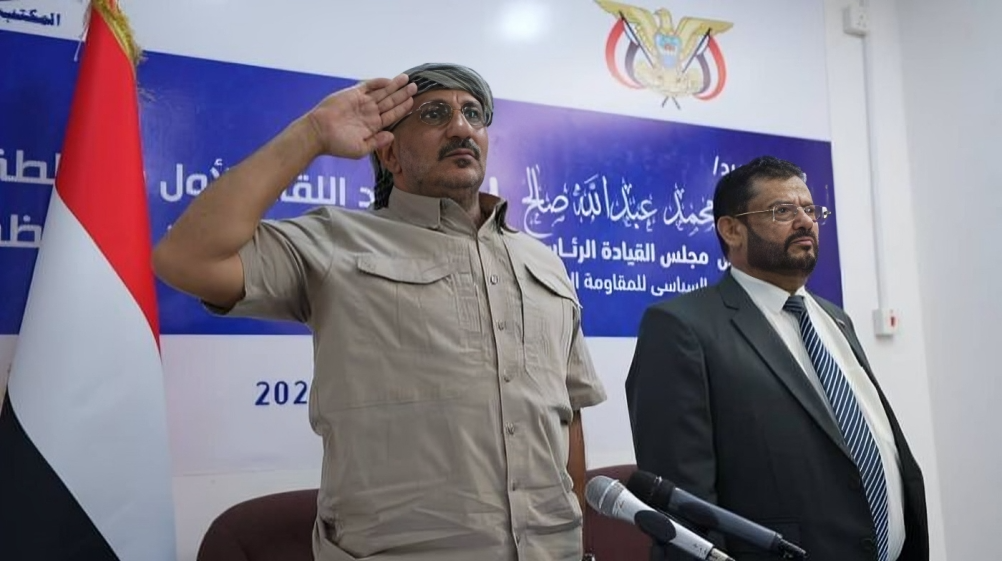


Barran Press
Tariq Saleh, a member of the Presidential Leadership Council, stated on Wednesday, May 14, 2025, that the leader of the Iran-backed Houthi group was not previously informed about the ceasefire agreement in the Red Sea. Instead, he allegedly received direct instructions from Iran to cease attacks on American vessels and was compelled to implement them.
Saleh's remarks came during an expanded meeting held with officials, tribal leaders, dignitaries, and prominent figures from the Raymah Governorate in the city of Mocha, Taiz Governorate. The governor of the province, Major General Ali Mohammed al-Houri, was also present, according to the official Yemeni news agency "Saba."
Tariq Saleh reportedly stated that the Houthi leader Abdulmalk al-Houthi admitted in a private meeting the impact of the American strikes targeting the group's leadership and hideouts. He allegedly acknowledged that these strikes were more damaging than the Israeli raids that destroyed infrastructure serving Yemenis. Saleh further asserted that the Houthis are facing escalating internal crises, alongside growing public rejection and increasing isolation.
The Omani Ministry of Foreign Affairs had announced on May 6th the reaching of a ceasefire agreement between the United States and the Iranian-backed Houthi group. This announcement came hours after statements by then-US President Donald Trump, in which he claimed that the Houthi group had informed him of their surrender and cessation of targeting commercial ships in the Red and Arabian Seas.
Tariq Saleh pointed out that Iran's proxies, the Houthis, have destroyed the achievements of Yemenis built over sixty years and even provoked Israel to bomb Yemeni infrastructure. He criticized them for boasting about a "hole in Israel" while ignoring the widespread destruction they have brought upon Yemen.
He emphasized that the Houthis are not involved in building but rather focus on levies, taxes, and establishing investment companies while eliminating commercial enterprises. He argued that the group serves the interests of both Israel and Iran, not those of the Yemeni people.
Saleh noted a shift in the international stance towards the Houthis following the Red Sea attacks. He called on Yemenis to unite in a national front to restore the state and its institutions, urging them not to rely on external strikes against the Houthis but to depend on their own strength through unity, preparation, and readiness for the inevitable national liberation battle.
The Presidential Leadership Council member stressed that Yemenis are currently fighting the Iranian project on behalf of all free peoples in the Arab and Islamic world, warning that if this project is not eradicated in Yemen, it will spread to other Arab countries.